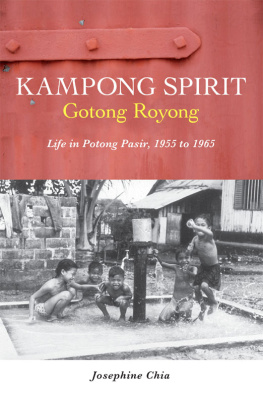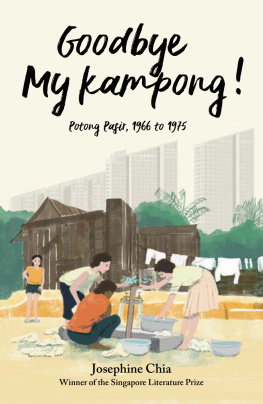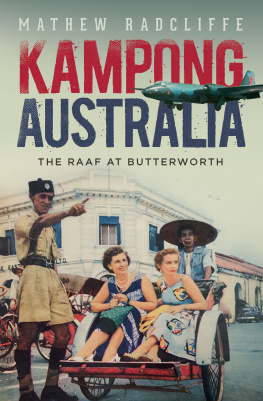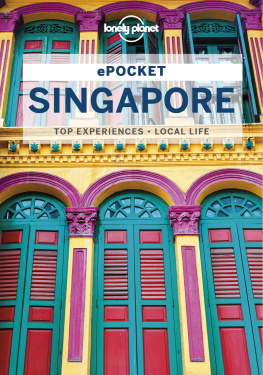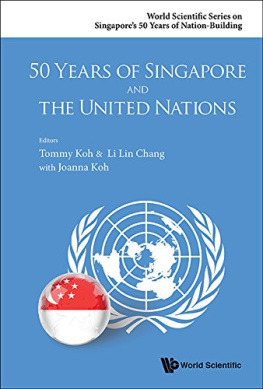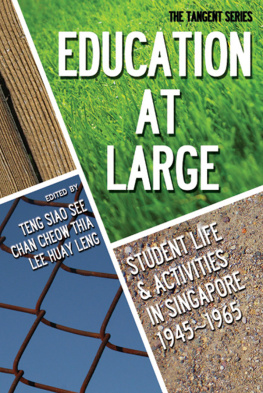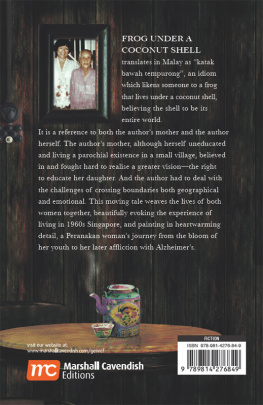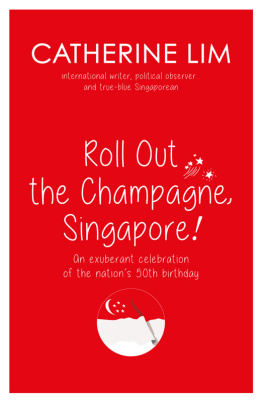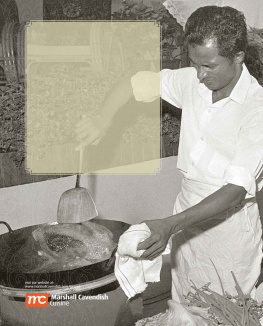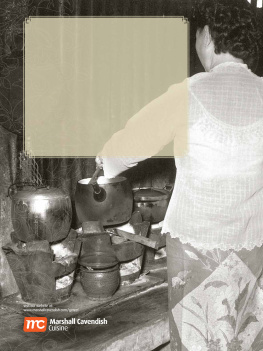This loving, nostalgic memoir of a crucial decade in Singapores history, 19551965, weaves personal with public events. Josephine Chia links happenings in her family to her kampong friends in Potong Pasir to national and international events. The family-kampong events include the coming of TV to Potong Pasir, the national includes Lee Kuan Yew campaigning there and the international impact of the news of the assassination of President Kennedy. In this way, the author imbues the seemingly small things with social significance, fusing drama, comedy and tragedy into a poignant tale of a child growing up. In addition, as she matures, she becomes aware of her Peranakan and feminist heritages, and how her mother empowered her by sending her to an English school. If you want to know what it was like for Singapore to progress exponentially from the third to the first world, this book is an essential document. It is an invaluable companion to her earlier book Frog Under a Coconut Shell.
Robert Yeo,
Author of ONE The Anthology, poet, playwright and novelist
This book gives a fascinating insight into life in a Singaporean Kampong during the transition from British rule to self-government with comparisons at different levels of living conditions. Josephines remarkable recall of childhood memories is fascinating ... This is a very well written book with vivid descriptions that are believable. It could be a useful reference book for students of the history of Singapore.
Jennie Lisney,
Vice President of UKs Society of Woman Writers & Journalists

KAMPONG SPIRIT
Gotong Royong
Life in Potong Pasir, 1955 to 1965
Josephine Chia

2013 Josephine Chia
Front cover: Bernard Go Kwang Meng
Published 2013
Marshall Cavendish Editions
An imprint of Marshall Cavendish International
1 New Industrial Road, Singapore 536196
All rights reserved
No part of this publication may be reproduced, stored in a retrieval system or transmitted, in any form or by any means, electronic, mechanical, photocopying, recording or otherwise, without the prior permission of the copyright owner. Request for permission should be addressed to the Publisher, Marshall Cavendish International (Asia) Private Limited, 1 New Industrial Road, Singapore 536196.
Tel: (65) 6213 9300. Fax: (65) 6285 4871
E-mail: .
Website: www.marshallcavendish.com/genref
The publisher makes no representation or warranties with respect to the contents of this book, and specifically disclaims any implied warranties or merchantability or fitness for any particular purpose, and shall in no events be liable for any loss of profit or any other commercial damage, including but not limited to special, incidental, consequential, or other damages.
Other Marshall Cavendish Offices
Marshall Cavendish Corporation. 99 White Plains Road, Tarrytown NY 10591-9001,
USA Marshall Cavendish International (Thailand) Co Ltd. 253 Asoke,
12th Floor, Sukhumvit 21 Road, Klongtoey Nua, Wattana, Bangkok 10110, Thailand
Marshall Cavendish (Malaysia) Sdn Bhd, Times Subang, Lot 46, Subang Hi-Tech Industrial Park, Batu Tiga, 40000 Shah Alam, Selangor Darul Ehsan, Malaysia.
Marshall Cavendish is a trademark of Times Publishing Limited
National Library Board, Singapore Cataloguing-in-Publication Data
Chia, Josephine.
Kampong spirit gotong royong : life in Potong Paisr, 1955 to 1965 / Josephine Chia.
Singapore : Marshall Cavendish Editions, 2013.
p. cm.
eISBN : 978 981 4435 25 3
1. Communities Singapore Social life and customs. 3. Lifestyles Singapore.
I. Title.
HN655.2.C6
307.095957 dc23 OCN823784086
Printed in Singapore by Markono Ltd
This book is dedicated to my grandchildren
Jeremiah, Emmanuel, Amelia and Mattheus,
and to all the children of Singapore
who hold the future of our nation in their hands.
Contents
Acknowledgements
I WISH TO thank National Arts Council (NAC) for their generous Arts Creation Fund which made it possible for me to concentrate on writing this book. I am also grateful to the NAC for giving the publishing grant to Marshall Cavendish to publish this book.
I would also like to thank the National Archives for permission to use some of their photographs. Photo credits and thanks also go to Mr Lim Kheng Chye and Mr Han Chou Yuan.
The first incarnation of Balik Kampong was published in the Peranakan magazine, by the Peranakan Association; and its second incarnation was subsequently published in National Library Boards Singapore Memories archives.
I wish to also acknowledge the use of a couple of books which helped to refresh my memory and confirm some of the facts. These are:
Singapore An Illustrated History, 19411984, Text and Edited by Daljit Singh & VT Arasu. Published by the Information Division, Ministry of Culture.
Chronicle Of Singapore, 19592009, Edited by Peter HL Lim. Published by EDM and NLB.
Non-specific Articles from NLB Singapore Infopedia, newspaper articles and from the National Archives.
The quotation by Mr Goh Chok Tong is taken from Our place in Time Exploring Heritage And Memory in Singapore, edited by Kwok Kim Woon et al. Published by Singapore Heritage Society,1996.
The lyrics of P. Ramlees song Getaran Jiwa is taken from the film, Anatara Dua Drajat by the Shaw Brothers. Its English translation was gleaned from various translations on the web.
I have been lucky to get two excellent editors for this book. Jennie Lisney, United Kingdom, came in when the manuscript was still under the NAC Arts Creation Fund Process. Tara Hasnain was appointed when Marshall Cavendish accepted the manuscript. I am amazed what good editors can pick up when the writer herself is blinded by her own words. So thank you both!
Foreword
EVERYONE WANTS TO be happy. Only the degree differs. How avidly one wants to pursue this happiness depends on how much it matters to the individual. This quest starts from satisfying the basic needs of having a home, nourishment, good health and family. Yet somehow it morphs into an obsession to possess more and more things, as if somehow material acquisitions can satisfy the inner longing of the spirit.
Modern Singapore has all the trappings of material success.
This is not something to belittle, as it has taken hard work, dedication and good leadership, for our country to transform itself from a swamp-infested island, where many people lived below the breadline, to a striving metropolis where the majority of the population are in comfortable housing and living well. And yet there is a growing sense that this never-ending race to acquire all the material comforts isnt giving us true happiness. People are beginning to look at other worthwhile pursuits that would satisfy the deep yearnings within their psyche.
It surprised many modern Singaporeans to discover that the Singapore folk, particularly those who had lived in our now-vanished kampongs with their lack of material comforts, of proper sanitation, of running water in the houses, of electricity and even food, had still seemed rather happy with that life. What was the quintessential quality that these rural people had, which had helped them get through their challenging lives with smiles on their faces and gratitude in their hearts?
Next page
